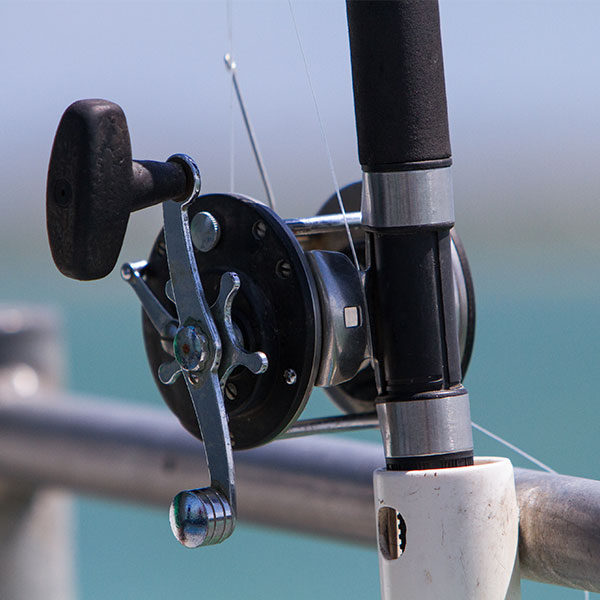Anglers Invited to Provide Critical Input on How Offshore Energy Affects Recreational Angling
Results of the citizen science data will help determine the fate of oil rigs in the Gulf.
The Texas Sea Grant College Program is a collaboration of the National Oceanic and Atmospheric Administration (NOAA), the State of Texas and universities across the state.
Texas Sea Grant’s team includes administrative staff, program coordination, communications, and extension agents along the Texas coast.
Coastal Science. Community Solutions.
Peer-reviewed publications, resources, and materials.
Volunteer organization of citizens in science, workforce, and education advising on important matters related to TXSG.
Texas Sea Grant partners with many local, government, non-profit, education, and industry organizations.
Texas Sea Grant maintains an extensive network of partnerships spanning federal, state, regional, academic, non-profit, and industry sectors.
Texas Sea Grant’s open positions.
Supports healthy ecosystems by education and outreach, programming, and events on sustainable practices.
Supports development of innovative policies, institutional capacities, and management approaches that increase community resilience.
Promotes environmental literacy by supporting students and the workforce through the development of STEM educational programs, tools, and products.
Works to ensure safe, secure, and sustainable supplies of domestic seafood and decrease our reliance on seafood imports, and support healthy fish stocks and vibrant recreational fisheries
Texas Sea Grant’s outreach serves the communities and regions of the Texas coast. Science for the sustainable management and conservation of Texas’ coastal and marine resources is central to Texas Sea Grant’s mission.
Extension is a two-way transfer of knowledge between researchers and community stakeholders.
Providing science-based programs across all educational levels, enhancing STEM learning in marine-related fields.
Supports innovative, science-based solutions to address environmental, economic, and social challenges.
Texas Sea Grant welcomes the help of the community to help monitor, protect, and clean our coasts.
Trainings, Workshops, Advising, Certification and Technical Assistance.
Find out if Texas Sea Grant is hosting, attending, or leading an event in your area.
Texas Sea Grant supports marine- and coastal-related research at universities across the state through a competitive grant program.
Texas Sea Grant will continue to support cutting-edge research in the areas of marine-related energy sources, climate change, coastal processes, energy efficiency, hazards, storm water management and tourism.
Monthly Texas Sea Grant newsletter.
Get Hooked, quarterly Fisheries, Aquaculture, and Seafood newsletter
Annual magazine about education, outreach, and research supported by Texas Sea Grant.
The Texas Sea Grant College Program is a collaboration of the National Oceanic and Atmospheric Administration (NOAA), the State of Texas and universities across the state.
Texas Sea Grant’s team includes administrative staff, program coordination, communications, and extension agents along the Texas coast.
Coastal Science. Community Solutions.
Peer-reviewed publications, resources, and materials.
Volunteer organization of citizens in science, workforce, and education advising on important matters related to TXSG.
Texas Sea Grant partners with many local, government, non-profit, education, and industry organizations.
Texas Sea Grant maintains an extensive network of partnerships spanning federal, state, regional, academic, non-profit, and industry sectors.
Texas Sea Grant’s open positions.
Supports healthy ecosystems by education and outreach, programming, and events on sustainable practices.
Supports development of innovative policies, institutional capacities, and management approaches that increase community resilience.
Promotes environmental literacy by supporting students and the workforce through the development of STEM educational programs, tools, and products.
Works to ensure safe, secure, and sustainable supplies of domestic seafood and decrease our reliance on seafood imports, and support healthy fish stocks and vibrant recreational fisheries
Texas Sea Grant’s outreach serves the communities and regions of the Texas coast. Science for the sustainable management and conservation of Texas’ coastal and marine resources is central to Texas Sea Grant’s mission.
Extension is a two-way transfer of knowledge between researchers and community stakeholders.
Providing science-based programs across all educational levels, enhancing STEM learning in marine-related fields.
Supports innovative, science-based solutions to address environmental, economic, and social challenges.
Texas Sea Grant welcomes the help of the community to help monitor, protect, and clean our coasts.
Trainings, Workshops, Advising, Certification and Technical Assistance.
Find out if Texas Sea Grant is hosting, attending, or leading an event in your area.
Texas Sea Grant supports marine- and coastal-related research at universities across the state through a competitive grant program.
Texas Sea Grant will continue to support cutting-edge research in the areas of marine-related energy sources, climate change, coastal processes, energy efficiency, hazards, storm water management and tourism.
Monthly Texas Sea Grant newsletter.
Get Hooked, quarterly Fisheries, Aquaculture, and Seafood newsletter
Annual magazine about education, outreach, and research supported by Texas Sea Grant.
Results of the citizen science data will help determine the fate of oil rigs in the Gulf.
Aug 3, 2022 By Sara Carney
1 minutes

Texas Sea Grant
Oil and gas rigs can serve as artificial reefs and provide habitat for ecologically and economically significant fish species such as red snapper and amberjack. In the early 2000s, over 4,000 oil rigs were present in the Gulf of Mexico. Today, fewer than half this number of active and decommissioned oil rigs are present in the Gulf of Mexico.
Scientists with Texas A&M University and LGL Ecological Research Services are seeking input from recreational anglers in Texas and Louisiana to fully understand the impacts of this decrease in oil rigs on fish populations and recreational angling in the Gulf.
This study, which is supported by the National Sea Grant College Program and the Bureau of Safety and Environmental Enforcement, could inform future tools to readily identify the environmental and economic impacts of removing an oil rig. It will allow decision makers to include impacts on recreational fishing when they make choices on whether to remove a rig or turn the rig into an artificial reef.
Anglers can help by completing a 15-minute survey online on their fishing habits and destination preferences or by using the FishVerify smartphone app to provide detailed information about a single fishing trip.
Survey participants are eligible for a 1 in 50 chance of winning $100. App users are eligible for a 1 in 25 chance of winning $500.
All data obtained from participation in the study is confidential—only aggregate results will be shared publicly.
To participate or learn more, visit tx.ag/RecFishing.
https://www.youtube.com/embed/yV8sc9A_4l4
Media Contact:
Dr. Richard Woodward, professor, Texas A&M University, 979-845-5864,
r-woodward@tamu.edu
